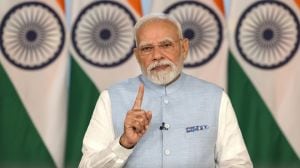Beijing podium protests possible: US athletes
US Olympians spoke out about China's human rights issues, predicting possible podium protests at the Beijing Olympics.

US Olympians began speaking out about China’s recent crackdown in Tibet and links to Darfur and other human rights issues, some predicting possible podium protests at the Beijing Olympics.
More than 125 US Olympians gathered in Chicago to speak with reporters from around the world just days after protests disrupted the global Olympic torch tour stops in London, Paris and San Francisco.
“There will be protests but I don’t think it will brand the Games,” said 2004 bronze medal wrestler Patricia Miranda said. “I would have said no a month ago but the fact the protests started so early caught me off guard.
“I would say the protests are going to be smart, not just not showing up.”
Some world leaders have talked of world boycotts or spurning the opening ceremonies, but Sheila Taormina, a two-time triathlete and 1996 swim relay champion trying to become a modern pentathlon Olympian, says it’s a bad idea.
“I’d be very disappointed if there was a boycott,” she said. “I don’t think it would solve anything and it would shatter a lot of dreams. There are other ways that wouldn’t cause harm or take away from the spirit of the Olympics.”
“It’s not that I don’t believe in human rights issues. But the Olympic Games are about the world coming together and putting all of our differences aside and feeling the goodwill.
“The Olympic Games is not a platform to take action on any human rights issues. It would be very hypocritical. It would be jumping on the bandwagon without feeling very passionate about it.”
Paul Hamm, the 2004 Olympic all-around men’s gymnastics champion, agreed.
“The Olympics are about bringing people together. It’s not about making the Olympics something you can use as a political tool,” Hamm said.
“What’s going on is important. We should pay attention to it. If you want to bring politics into the Olympics, let politicians do that. We’re athletes.”
US President George W Bush has not confirmed he will attend the start of the Beijing Olympics on August 8.
“That’s up to President Bush and the other world leaders.
They are able to make that decision,” said gold medal softball outfielder Jessica Mendoza, who admitted she has pondered a podium protest.
“I thought about that. I guess we will just have to see.
First we have to win the gold to get that 15 minutes of fame.
If we get that we’ll have to see.”
After protesters disrupted the torch relay, IOC president Jacques Rogge termed the mess a “crisis” and spoke of China’s moral engagement to push for change even as the government cracks down.
“Are we human? Do we have consciousness in our minds and hearts? Yes. We hope to make change. We hope to bring the world together. But that’s a lot to ask of an athlete,” women’s soccer standout Heather O’Reilly said.
“Winning the gold medal is where we can speak the loudest, by representing our country in the best way possible.”
Miranda, whose Brazilian father and late Japanese mother fought Brazilian military rule in 1960s, praised the 1968 Olympic medal podium raised-fight protest of Americans Tommie Smith and John Carlos.
“That was an effective use of their position,” Miranda said. “I’m not leaning toward actually protesting during an Olympic ceremony. I think I will go with the IOC recommendation on that.
“I feel a duty (to speak out) because I’m going to benefit, especially when I hear them taking over homes (for the Games). The genocide in Darfur, where China has a connection, I’d say the genocide is more important.”
Mendoza advocates the quiet diplomacy of talk among athletes as a catalyst to change even as she educates teammates and foes, saying, “In a way ignorance is bliss. Sometimes I’m jealous of how happy they are.” “It’s not my place to tell China what to do. It’s my place to let people know what’s happening so they will hold people accountable for what they do,” Mendoza said.
“Everything that has happened in Darfur 400,000 people killed since 2003, the women being raped, millions of children with nowhere to call home – pulls at my heart.”
Mixing social responsibility with sporting success in China is a difficult blend for athletes powerless to impose change yet potentially with the world’s attention come August.
“You do overhear what’s going on,” 2007 world all-around women’s gymnastics champion Shawn Johnson said. “You can’t do anything with our power to change it so you learn to live with it. We’re focused on our training right now.” “If there needs to be change in the world, it needs to be more than putting a torch in the water,” US women’s soccer captain Kate Markgraf said.
Photos





- 01
- 02
- 03
- 04
- 05

























